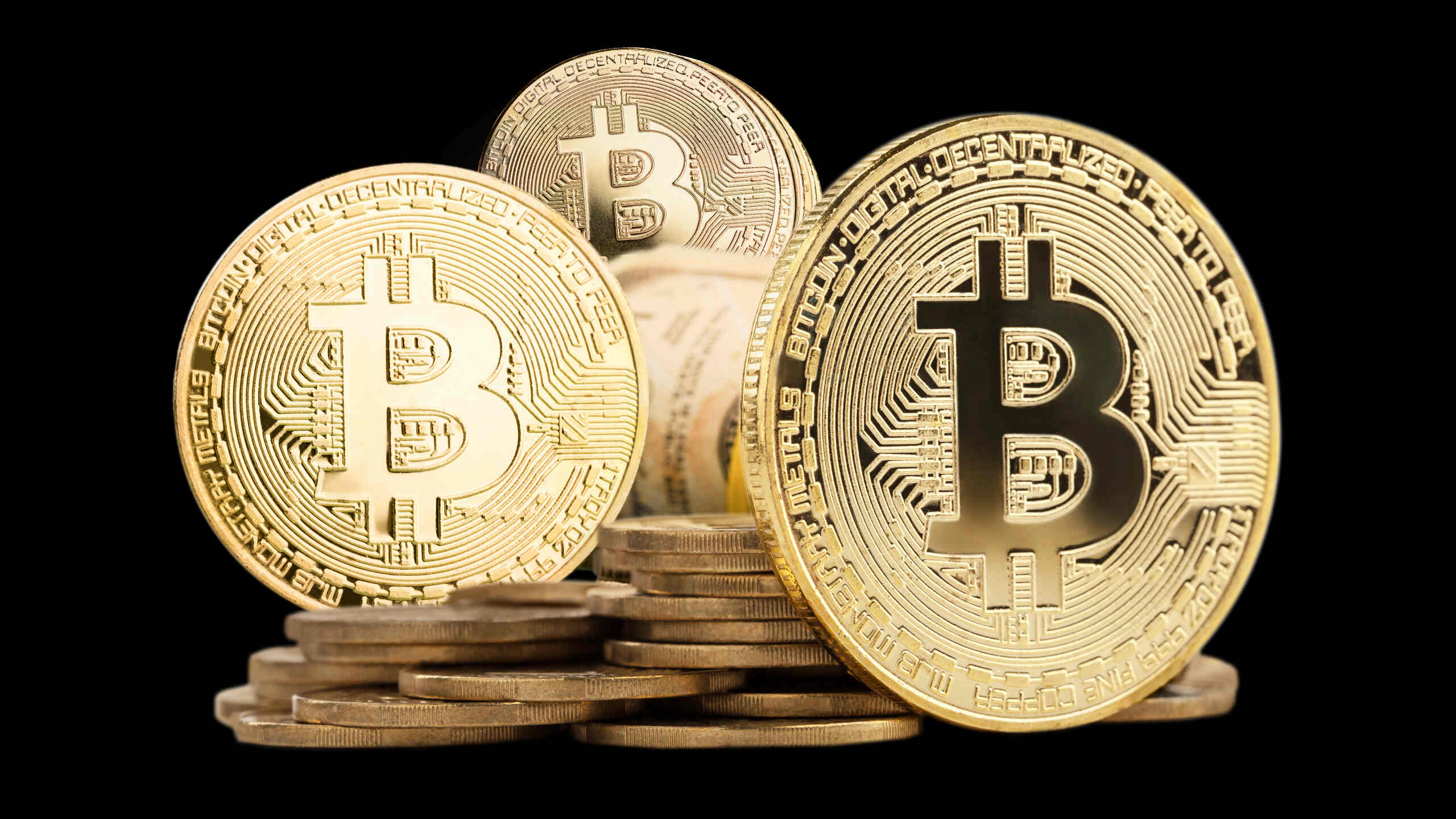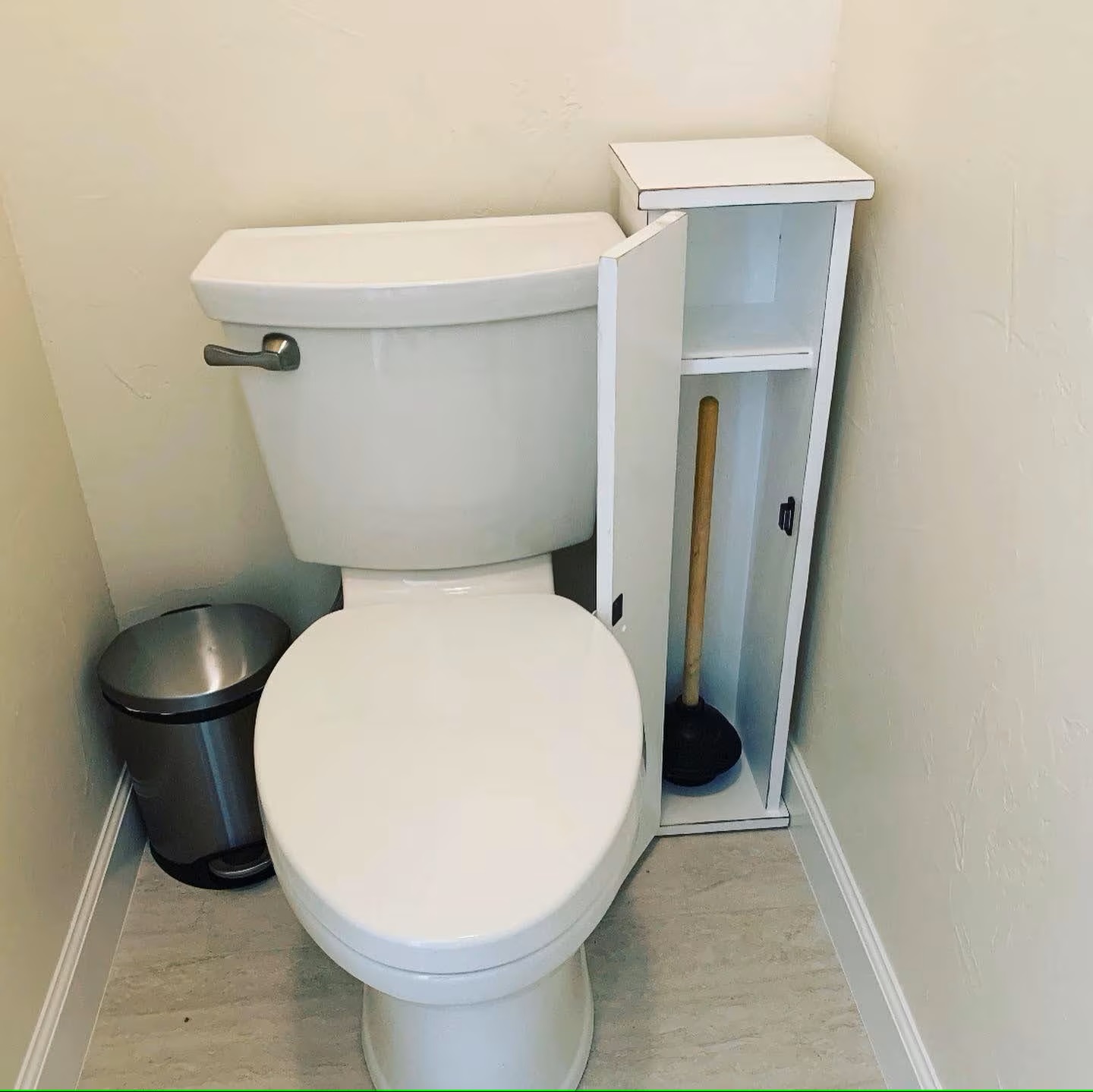

Articles
How To Store Bitcoins
Modified: December 7, 2023
Learn the best strategies for storing and securing your Bitcoins. Read our informative articles to keep your digital assets safe and protected.
(Many of the links in this article redirect to a specific reviewed product. Your purchase of these products through affiliate links helps to generate commission for Storables.com, at no extra cost. Learn more)
Introduction
Bitcoin is a digital currency that has gained immense popularity in recent years. As more and more people are adopting Bitcoin as a form of payment and investment, it becomes crucial to understand how to store bitcoins safely and securely. Unlike traditional physical currencies, bitcoins are stored in digital wallets.
Bitcoin wallets serve as a storage and management tool for bitcoins. They enable users to send, receive, and store their bitcoins securely. It is important to choose the right type of wallet that suits your needs and ensures the safety of your bitcoins.
In this article, we will explore the different types of bitcoin wallets available and discuss important security measures to protect your bitcoins from unauthorized access.
Key Takeaways:
- Choose the right wallet: Consider your needs and risk tolerance when selecting a wallet. Balance security, convenience, and accessibility to safeguard your bitcoins effectively.
- Stay vigilant against threats: Implement 2FA, avoid phishing, and regularly update your wallet to protect against unauthorized access and potential loss.
Read more: How To Store Bitcoin On Usb
Wallet Options
When it comes to storing bitcoins, there are several wallet options available. Each option has its own pros and cons, and it’s important to understand them before making a decision.
Here are some of the most popular types of bitcoin wallets:
- Hot Wallets: Hot wallets are wallets that are connected to the internet, allowing for easy accessibility and convenience. They can be accessed through web-based platforms, mobile apps, or desktop applications. While hot wallets provide quick access to your bitcoins, they are more susceptible to hacking and online attacks.
- Cold Wallets: Cold wallets are offline storage devices that are not connected to the internet. They offer a higher level of security by keeping your private keys offline, making it less vulnerable to online attacks. Cold wallets can be in the form of hardware devices or paper wallets.
- Paper Wallets: Paper wallets are physical printouts or handwritten notes containing your bitcoin public and private keys. They are considered one of the most secure ways to store bitcoins as they are not susceptible to online hacks. However, paper wallets can be easily damaged, lost, or stolen, so it’s crucial to keep them in a safe and secure place.
- Hardware Wallets: Hardware wallets are physical devices that store your bitcoins offline. They are specifically designed to protect your private keys and provide an additional layer of security. Hardware wallets are immune to computer viruses and hacking attempts, making them one of the safest options for storing bitcoins.
- Mobile Wallets: Mobile wallets are smartphone applications that allow you to store and manage your bitcoins on the go. They offer convenience and accessibility, but are more susceptible to malware attacks and phone theft. It’s important to ensure your mobile device is secured with strong passwords and encryption.
- Software Wallets: Software wallets are applications that you install on your computer or laptop. They offer a balance between convenience and security. However, software wallets are still vulnerable to malware attacks and computer viruses, so it’s important to keep your operating system and antivirus software up to date.
It’s important to choose a wallet option that aligns with your storage needs and risk tolerance. Consider factors such as security, convenience, and accessibility when selecting a wallet.
Hot Wallets
Hot wallets are a popular choice for storing bitcoins due to their accessibility and convenience. These wallets are connected to the internet, allowing users to easily send, receive, and manage their bitcoins from web-based platforms, mobile apps, or desktop applications.
There are different types of hot wallets available, ranging from online wallets provided by cryptocurrency exchanges to software wallets that you can download and install on your computer or mobile device.
One advantage of hot wallets is that they offer quick and easy access to your bitcoins. You can make transactions instantly without the need for additional hardware or offline storage devices. Hot wallets also typically support multiple cryptocurrencies, allowing you to manage different digital assets in a single wallet.
However, it is important to be aware that hot wallets are more vulnerable to security risks compared to other wallet options. Since they are connected to the internet, there is a higher risk of hacking, malware attacks, and phishing attempts.
To enhance the security of your hot wallet, there are several measures you can take:
- Use reputable and secure wallets: Choose hot wallets from trusted providers with a good reputation and a track record of security. Research and read reviews to ensure that the wallet you choose has strong security measures in place.
- Enable two-factor authentication (2FA): Two-factor authentication adds an extra layer of security by requiring a second verification step, such as a unique code sent to your mobile device, in addition to your password. Enable 2FA on your hot wallet to protect against unauthorized access.
- Keep software and devices updated: Regularly update your wallet software, operating system, and antivirus software to ensure you have the latest security patches and protections against vulnerabilities.
- Use strong and unique passwords: Create strong passwords for your hot wallet and avoid reusing them for other accounts. Consider using a password manager to securely store and generate complex passwords.
- Be cautious of phishing attempts: Be vigilant of phishing attempts, where attackers try to trick you into revealing your login credentials or seed phrases. Always double-check the website URL, email sender, and avoid clicking on suspicious links.
- Encrypt and backup your wallet: Encrypt your hot wallet and regularly back up your wallet data to protect against data loss or theft. Store your backups securely in offline or cloud storage with strong encryption.
While hot wallets offer convenience, it’s important to carefully consider the security risks and take appropriate measures to protect your bitcoins. Remember to strike a balance between accessibility and security when choosing a hot wallet.
Cold Wallets
Cold wallets are an excellent option for those seeking maximum security when storing their bitcoins. Unlike hot wallets, cold wallets are offline storage devices that are not connected to the internet. This isolation from online networks significantly reduces the risk of hacking and unauthorized access to your bitcoins.
Cold wallets can come in different forms:
- Hardware Wallets: Hardware wallets are physical devices designed specifically for storing bitcoins and other cryptocurrencies. They generate and store your private keys offline, ensuring that they are never exposed to the internet. Hardware wallets usually come with a screen and buttons to verify and approve transactions securely. They offer an excellent balance between security and usability, making them a popular choice among cryptocurrency enthusiasts.
- Paper Wallets: Paper wallets are another form of cold storage, where the private and public keys are printed or written on a piece of paper. Paper wallets are typically generated via a website or software application, which should be downloaded and used in an offline, secure environment. One key advantage of paper wallets is that they are entirely offline and immune to hacking attempts. However, it’s crucial to keep the paper wallet secure and protected from physical damage or loss.
Cold wallets provide robust security by keeping your private keys offline. Even if your computer or smartphone is compromised, your bitcoins remain safe within the cold wallet. However, it’s important to note that cold wallets can be less convenient when it comes to accessing and using your bitcoins for transactions.
When using cold wallets, it’s essential to follow these best practices:
- Secure your physical wallet: If you are using a hardware wallet or paper wallet, keep it in a safe place and protect it from damage, theft, or loss. Consider using additional security measures like safes or safety deposit boxes to safeguard your cold wallet.
- Create backups: It’s crucial to create backups of your cold wallet’s private keys or recovery seed phrases. Store these backups in secure, offline locations, such as a safe or encrypted USB drive. This ensures that even if your cold wallet is lost or damaged, you can recover your bitcoins.
- Double-check wallet addresses: When making transactions, always verify the wallet address to prevent sending funds to the wrong recipient. Double-check the address carefully, as transactions made with cold wallets are irreversible.
- Consider multisig wallets: Multisig wallets require multiple approvals before a transaction can be executed. This adds an extra layer of security, as it makes it more difficult for an attacker to gain unauthorized access to your bitcoins.
- Keep software up to date: If you are using a hardware wallet with associated software, make sure to keep both the wallet firmware and software up to date. Updates often include security patches and improvements.
Cold wallets provide the highest level of security for storing bitcoins. They are an excellent choice for long-term storage or for users with a significant amount of bitcoins. However, it’s important to weigh the convenience factor, as accessing and using your bitcoins stored in a cold wallet may require additional steps compared to hot wallets.
Paper Wallets
Paper wallets are a form of cold storage for bitcoins that offer a high level of security. They involve printing or writing down your bitcoin public and private keys onto a physical piece of paper. Paper wallets are completely offline, making them immune to hacking and online attacks.
The process of creating a paper wallet typically involves using a website or software application that generates a random set of public and private keys. Once generated, these keys are then printed or written down on a piece of paper. It is crucial to perform this process in a secure and offline environment to prevent potential exposure of the private keys.
One of the key advantages of using a paper wallet is the level of control it provides over your bitcoins. Since the private keys are stored offline, there is no risk of them being compromised or stolen through hacking attempts. Additionally, paper wallets do not rely on any third-party service provider, giving users complete ownership and control of their bitcoins.
However, it’s important to note that paper wallets come with their own set of considerations and potential risks:
- Physical Security: As paper wallets are physical pieces of paper, they can be susceptible to damage, loss, or theft. It’s crucial to store your paper wallet in a secure place, such as a safe or a sealed envelope in a hidden location. Consider making multiple copies and storing them in separate secure locations for added protection.
- Single Use: Paper wallets are typically used as a one-time storage method. When you want to access your bitcoins or make a transaction, you will need to import the private key into a software or hardware wallet. Once the private key is exposed to an online environment, the security benefits of the paper wallet are diminished.
- Backup and Recovery: It is crucial to create backups of your paper wallet. If the original paper wallet is lost, damaged, or stolen, having a backup copy will allow you to recover your bitcoins. Store the backup in a separate secure location.
- Limited Usage: Paper wallets are primarily designed for long-term storage of bitcoins. If you require frequent access to your bitcoins for transactions or trading, a paper wallet may not be the most convenient option. Consider using a software or hardware wallet for more active usage.
- Beware of Scams: When generating a paper wallet, it’s important to use a trusted and reputable source. Malicious websites or software applications may generate compromised or pre-generated wallets, allowing attackers to gain access to your bitcoins. Verify the authenticity and reputation of the paper wallet generator before using it.
When using paper wallets, it’s important to follow best practices to ensure the security of your bitcoins. This includes keeping the physical paper wallet secure, creating backups, and only importing the private key into a trusted and secure wallet when necessary.
Paper wallets can be an excellent choice for cold storage of bitcoins, especially for long-term holdings. They offer a secure and offline storage method, allowing you to maintain complete control over your bitcoins.
Read more: How To Store Bitcoin Offline
Hardware Wallets
Hardware wallets are physical devices specifically designed to store and secure your bitcoins. They offer an excellent balance between security and usability, making them one of the most popular choices for storing cryptocurrencies.
Unlike hot wallets or paper wallets, hardware wallets keep your private keys offline, providing an added layer of protection against online attacks and hacking attempts. They typically consist of a small, portable device with a screen and buttons for user interaction.
Here are some key advantages of using hardware wallets:
- Enhanced Security: Hardware wallets provide a high level of security by keeping your private keys isolated within the device. The private keys are never exposed to the internet, reducing the risk of theft or unauthorized access.
- User-Friendly Interface: Hardware wallets typically come with a user-friendly interface that allows you to easily manage your bitcoins. They display transaction details on the built-in screen and have buttons for confirming or rejecting transactions.
- Support for Multiple Cryptocurrencies: Most hardware wallets support multiple cryptocurrencies, allowing you to store a variety of digital assets in one device. This makes them a versatile option for investors and enthusiasts with diverse cryptocurrency portfolios.
- Backup and Recovery Options: Hardware wallets usually provide backup and recovery options to protect against loss or damage of the device. They often utilize a recovery seed, a set of randomly generated words that allow you to restore your wallet on a new device if necessary.
- Protection Against Malware and Viruses: Since hardware wallets operate in isolation from your computer or mobile device, they are immune to malware and viruses that may infect your device. This significantly reduces the risk of keylogger attacks or other forms of malware-based theft.
When using a hardware wallet, it’s important to follow some best practices to ensure the security of your bitcoins:
- Buy from Trusted Sources: Purchase hardware wallets directly from reputable and authorized resellers. Avoid purchasing from third-party sellers or online marketplaces, as there is a risk of counterfeit or tampered devices.
- Set up a Strong PIN: During the initial configuration of your hardware wallet, set up a strong PIN code to protect access to the device. Avoid using easily guessable numbers and consider enabling the feature that wipes the device after a certain number of failed attempts.
- Secure Storage: When not in use, keep your hardware wallet in a secure place, such as a safe or a locked drawer. Prevent physical access to the device to ensure the safety of your bitcoins.
- Regularly Update Firmware: Manufacturers often release firmware updates for hardware wallets to address security vulnerabilities and introduce new features. Stay up to date with the latest firmware versions to benefit from improved security measures.
Hardware wallets are an excellent choice for storing bitcoins, especially for long-term holdings or significant cryptocurrency portfolios. They offer a high level of security and ease of use, giving users peace of mind knowing that their bitcoins are stored in a reliable and protected manner.
Mobile WalletsMobile wallets are smartphone applications that allow users to store and manage their bitcoins directly from their mobile devices. They offer convenience and accessibility, as you can carry your bitcoins with you wherever you go.
Mobile wallets are designed to be user-friendly and intuitive, making it easy for both beginners and experienced users to manage their bitcoins on the go. They often have a simple and sleek interface, allowing users to send, receive, and monitor their bitcoin transactions with ease.
Here are some key advantages of using mobile wallets:
- Convenience and Accessibility: Since most people carry their smartphones with them at all times, mobile wallets provide easy access to your bitcoins wherever you are. You can make transactions quickly and conveniently, making mobile wallets ideal for everyday use.
- Real-Time Updates and Notifications: Mobile wallets provide real-time updates and notifications for incoming and outgoing transactions. You can stay informed about the status of your bitcoin transactions right from your phone.
- QR Code Scanner Support: Mobile wallets often come with a built-in QR code scanner, allowing you to easily scan QR codes to send or receive bitcoins. This eliminates the need to manually enter bitcoin addresses, reducing the chances of making errors.
- Additional Features: Many mobile wallets offer additional features, such as the ability to convert bitcoins to fiat currency, integration with other services or apps, and the ability to manage multiple cryptocurrencies. These features provide added convenience and flexibility.
While mobile wallets offer convenience, there are a few important considerations for security:
- Keep Your Device Secure: Since your mobile wallet resides on your smartphone, it’s crucial to keep your device secure. Use strong passwords or biometric authentication methods to unlock your phone and set up auto-lock features. Regularly update your smartphone’s operating system and security patches to protect against vulnerabilities.
- Install from Trusted Sources: Be cautious when downloading a mobile wallet app and only install it from trusted sources such as official app stores like Google Play or the Apple App Store. Avoid third-party app stores or unknown websites to reduce the risk of downloading a malicious or compromised app.
- Backup Your Wallet: It’s important to regularly back up your mobile wallet. Follow the backup instructions provided by the wallet app to ensure you have a copy of your wallet’s recovery seed or private keys stored securely in case you lose or damage your device.
- Enable Two-Factor Authentication (2FA): Add an extra layer of security to your mobile wallet by enabling two-factor authentication. This requires a second verification step, such as a unique code sent to your mobile device, to access your wallet.
- Be Aware of Mobile Threats: Be vigilant against mobile threats, such as malware, phishing attempts, and unsecured Wi-Fi networks. Avoid clicking on suspicious links, and ensure you are using secure connections when accessing your mobile wallet.
Mobile wallets are a popular choice for users who want to have quick and convenient access to their bitcoins while on the go. With proper security measures in place, they can provide a secure storage option for managing your digital assets.
When storing bitcoins, use a hardware wallet for maximum security. Keep your recovery phrase safe and never share it with anyone. Regularly update your wallet’s software for the latest security features.
Software Wallets
Software wallets, also known as desktop wallets, are applications that you can install on your computer or laptop to store and manage your bitcoins. These wallets are designed to provide security and control over your digital currency while offering convenience and ease of use.
Software wallets come in different forms, including full-node wallets, lightweight wallets, and web-based wallets. They offer a range of features and options to suit different user needs and preferences.
Here are some key advantages of using software wallets:
- Security and Control: Software wallets allow you to maintain control of your private keys, which are necessary to access and manage your bitcoins. By storing the keys on your local device, you have the ability to secure your wallet and its backups according to your own preferences.
- User-Friendly Interfaces: Software wallets typically come with user-friendly interfaces that make it easy to send and receive bitcoins. They provide detailed transaction histories, balance overviews, and sometimes even support additional features such as address labeling and transaction memos.
- Backup and Recovery Options: Most software wallets offer backup and recovery options to protect your bitcoins in case of hardware failure or loss. They usually generate a recovery seed or provide an option to export your private keys, allowing you to restore your wallet on a different device.
- Additional Features: Some software wallets offer advanced features such as integration with hardware wallets, support for multiple cryptocurrencies, and compatibility with plugins or third-party applications. These features provide added flexibility and customization options.
To ensure the security of your bitcoins when using software wallets, consider the following best practices:
- Download from Official Sources: Only download software wallet applications from trusted and official sources. Be cautious of downloading wallets from third-party websites or unknown sources, as they may contain malicious software.
- Keep Software Up to Date: Regularly update your software wallet to ensure you have the latest security patches and bug fixes. Developers often release updates to address vulnerabilities and enhance the overall security of the wallet.
- Encrypt Your Wallet: Enable encryption on your software wallet to protect against unauthorized access. Choose a strong and unique password to ensure the security of your wallet data.
- Use Antivirus Software: Install reputable antivirus software on your computer and keep it up to date. This helps detect and prevent malware that may attempt to steal your private keys or compromise your wallet’s security.
- Be Mindful of Online Security: When using a software wallet that connects to the internet, be cautious of phishing attempts, malware, and unsecured networks. Ensure that you are downloading wallet updates from trusted sources and accessing your wallet over secure connections.
Software wallets provide a balance between security and convenience, making them a popular choice among bitcoin users. By following best practices for security and staying vigilant against online threats, you can safely store and manage your bitcoins with a software wallet.
Important Wallet Security Measures
When it comes to storing bitcoins, ensuring the security of your wallet is of utmost importance. Here are some key security measures to implement to protect your bitcoins from unauthorized access and potential loss:
- Backup and Recovery: Regularly backup your wallet to prevent the risk of losing access to your bitcoins in case of hardware failure, loss, or theft. Follow the backup instructions provided by your wallet provider and store the backup in a secure location, such as an encrypted USB drive or offline storage.
- Two-Factor Authentication (2FA): Enable two-factor authentication on your wallet whenever possible. This adds an extra layer of security by requiring a second verification step, such as a unique code sent to your mobile device, in addition to your password.
- Strong, Unique Passwords: Use strong and unique passwords for your wallet and avoid reusing them for other accounts. Consider using a password manager to generate and securely store your passwords.
- Secure Internet Connection: When accessing your wallet online, ensure that you are using a secure and trusted internet connection. Avoid using public Wi-Fi networks, as they may expose your wallet to potential attackers.
- Keep Software Updated: Regularly update your wallet software, operating system, and antivirus software to ensure that you have the latest security patches and protections against vulnerabilities.
- Verified Sources: Download wallet applications and updates only from trusted and verified sources. Be cautious of third-party websites or unofficial app stores, as they may distribute compromised or malicious software.
- Multi-Signature Wallets: Consider using multi-signature wallets that require multiple approvals for transactions. This provides an extra layer of security, as it makes it more challenging for an attacker to gain unauthorized access to your bitcoins.
- Phishing Awareness: Be vigilant of phishing attempts, where attackers try to trick you into revealing your wallet login credentials or private keys. Verify the authenticity of websites and emails before entering any sensitive information.
- Physical Security: Protect your physical wallets, such as hardware devices or paper wallets, from theft, damage, or loss. Store them in secure locations, such as safes or safety deposit boxes, and avoid sharing information about your wallet’s location with others.
- Regularly Monitor Transactions: Keep an eye on your wallet’s transaction history and verify any unfamiliar or suspicious transactions. If you notice any unauthorized activity, take immediate action to secure your wallet and contact your wallet provider for assistance.
By implementing these wallet security measures, you can significantly enhance the protection of your bitcoins and reduce the risk of unauthorized access or loss. Remember to stay informed about the latest security best practices and adapt your security measures accordingly to ensure the safety of your digital assets.
Read more: How To Store Store-Bought Bread
Backup and Recovery
Backing up your wallet and having a recovery plan in place is essential when it comes to safeguarding your bitcoins. Unexpected events such as hardware failure, loss, or theft can result in the permanent loss of your bitcoins if you do not have a proper backup.
Here are some key points to consider when it comes to backing up and recovering your wallet:
- Importance of Backup: Your wallet’s backup is a copy of the private keys associated with your bitcoins. Private keys are crucial for accessing and spending your bitcoins, so having a backup ensures that you can regain control over your funds if the original wallet is lost or compromised.
- Backup Methods: Most wallets provide backup options, such as a recovery seed phrase or an encrypted backup file. The recovery seed phrase consists of a series of randomly generated words that can be used to recreate your wallet on a different device. The encrypted backup file, on the other hand, contains your private keys and can be restored when needed.
- Storage Options: Choose a secure storage solution for your wallet backup. Consider offline options such as encrypted USB drives, external hard drives, or even paper copies kept in a safe and hidden location. It’s important to protect your backup from physical damage, loss, theft, or unauthorized access.
- Regular Backups: Make it a habit to regularly backup your wallet. How often you should perform backups depends on your frequency of transactions and the value of your bitcoins. It’s recommended to create a new backup whenever you generate new addresses or make significant changes to your wallet.
- Test the Recovery Process: It’s crucial to test and verify the recovery process before you actually need to use it. This ensures that you have a clear understanding of how to recover your wallet and that your backup is valid. Follow the instructions provided by your wallet provider to restore your wallet using the recovery seed or backup file.
- Secure Storage of Recovery Seed: If your wallet uses a recovery seed phrase, ensure that it is stored securely. Be mindful of potential vulnerabilities, such as storing the seed phrase digitally or sharing it with others. Consider writing it down on paper and keeping it in a safe place, away from prying eyes.
- Multiple Locations: Diversify the storage of your wallet backups by keeping them in multiple physical locations. This ensures that if one location is compromised or inaccessible, you still have access to another backup. However, always maintain strict control over who has access to your backups.
- Update Backups Regularly: As you continue to use your wallet and generate new addresses, it’s important to update your backups regularly. This ensures that all the latest private keys are included in the backup, minimizing the risk of losing access to any recent transactions.
Remember, the backup and recovery process is critical for protecting your bitcoins. Without a proper backup strategy, you may permanently lose access to your funds, and recovery can be challenging or even impossible. Take the time to set up reliable and secure backup mechanisms, regularly update your backups, and test the recovery process to ensure the safety and future accessibility of your bitcoins.
Two-Factor Authentication
Two-Factor Authentication (2FA) is an additional layer of security that helps protect your wallet and bitcoins from unauthorized access. It requires users to provide two forms of identification before granting access to their accounts, making it significantly harder for attackers to gain control over your funds.
Here are some key points to consider when it comes to implementing two-factor authentication for your wallet:
- How 2FA Works: Two-factor authentication adds an extra step to the login process. In addition to your username and password, you will be required to provide a second form of verification, typically a unique code or a prompt sent to your mobile device.
- The Importance of 2FA: By enabling 2FA, you add an extra layer of protection to your wallet, making it significantly more difficult for attackers to gain unauthorized access. Even if your password is compromised, the attacker won’t be able to access your wallet without the second factor of authentication.
- Types of 2FA: There are different types of 2FA available, including SMS-based verification, authenticator apps like Google Authenticator or Authy, or hardware security keys like YubiKey. Each method has its own advantages and considerations, so choose the one that best fits your needs and preferences.
- Enabling 2FA: To enable 2FA, follow the instructions provided by your wallet provider. Typically, you will need to go through a setup process that involves linking your wallet to a 2FA app or registering a phone number to receive verification codes. Make sure to securely store any backup codes provided during the setup process.
- Keep Your 2FA Method Secure: It’s crucial to protect the 2FA method you choose to use. If you opt for an authenticator app, make sure to enable a secure lock screen on your phone and keep your device in a safe and secure location.
- Backup Codes: Some wallets provide backup codes that can be used to regain access to your wallet in case you lose your 2FA device or cannot receive verification codes. Store these backup codes securely, separate from your wallet backup, to ensure they are available when needed.
- Recovery Options: If you lose access to your 2FA device or backup codes, contact your wallet provider for instructions on how to recover access to your wallet. They may require additional verification steps to ensure the account’s rightful owner regains control.
- Regularly Review App Permissions: If you are using a 2FA app, periodically review the permissions granted to the app on your device. Ensure that it only has access to necessary features and data, minimizing the risk of your authentication codes being compromised.
- Trustworthy 2FA Apps: When using a 2FA app, make sure to download it from a trusted source. Stick to reputable app stores and be cautious with third-party offerings. Verify the app’s authenticity before installing it on your device.
Enabling two-factor authentication adds an extra layer of security to your wallet, significantly reducing the risk of unauthorized access and potential loss of your bitcoins. By taking the time to set up and manage 2FA properly, you enhance the overall security and protection of your digital assets.
Avoiding Phishing and Scams
Phishing attempts and scams pose a significant threat to the security of your wallet and bitcoins. Attackers use deceptive tactics to trick users into revealing their login credentials, private keys, or other sensitive information. It’s crucial to stay vigilant and follow best practices to protect yourself from falling victim to phishing and scams.
Here are some key points to consider when it comes to avoiding phishing attempts and scams:
- Be Wary of Suspicious Emails: Phishing emails often mimic legitimate communication from wallet providers, exchanges, or other cryptocurrency services. Be cautious of emails asking for your login credentials or other sensitive information. Look for red flags such as misspellings, generic greetings, or suspicious email addresses.
- Verify the Authenticity of Websites: Attackers may create fake websites that closely resemble official wallet or exchange sites. Check the URL carefully, especially the domain name, for any inconsistencies or variations. Bookmark the official website and use that bookmark to access the site, rather than clicking on links in emails or search results.
- Double-Check URL Security: Ensure that websites are using secure connections by checking that the website URL starts with “https://” instead of “http://”. Look for the padlock icon in the address bar, indicating that the site is encrypted and secure. Avoid entering sensitive information on websites that aren’t secured.
- Enable Two-Factor Authentication (2FA): By enabling 2FA, you add an extra layer of protection against phishing attempts. Even if an attacker manages to obtain your password, they won’t be able to access your wallet without the second factor of authentication.
- Be Cautious of Unexpected Requests: Be suspicious of unsolicited requests for personal information or passwords. Legitimate wallet providers or exchanges will never ask you to disclose your login credentials, private keys, or recovery phrases. If in doubt, contact customer support through official channels to verify the request.
- Keep Software Up to Date: Regularly update your wallet software, operating system, and antivirus software. Software updates often include security patches that protect against known vulnerabilities and help prevent phishing attacks.
- Use Antivirus Software: Install reputable antivirus software on your computer or mobile device. Antivirus programs can detect and warn against known phishing websites and malicious software.
- Be Mindful of Social Engineering: Attackers may attempt to manipulate and deceive you through social engineering techniques. Be cautious of unsolicited phone calls, text messages, or chat messages asking for personal information or access to your wallet. Don’t share sensitive information with unknown or untrusted individuals.
- Educate Yourself: Stay informed about common phishing techniques and the latest scams targeting cryptocurrency users. Be aware of the evolving strategies employed by attackers and stay updated on security best practices.
Phishing attempts and scams are constantly evolving, so it’s important to remain vigilant and skeptical of any unexpected or suspicious requests. By following these best practices and staying informed, you can significantly reduce the risk of falling victim to phishing attacks and safeguard your wallet and bitcoins from unauthorized access.
ConclusionStoring your bitcoins safely and securely is of utmost importance to protect your digital assets from unauthorized access and potential loss. Understanding the different wallet options and implementing the right security measures can help ensure the integrity and privacy of your bitcoins.
In this comprehensive guide, we explored various wallet options such as hot wallets, cold wallets, paper wallets, hardware wallets, mobile wallets, and software wallets. Each wallet type offers unique features and considerations, allowing you to choose the most suitable option based on your needs and risk tolerance.
We also discussed important wallet security measures, such as backup and recovery strategies, two-factor authentication (2FA), and how to avoid phishing and scams. Implementing these security measures significantly enhances the protection of your bitcoins and reduces the risk of unauthorized access or loss.
Remember to back up your wallet regularly to ensure you can recover your funds in case of hardware failure, loss, or theft. Enable two-factor authentication whenever possible to add an additional layer of security. Be cautious of phishing attempts and scams, and always verify the authenticity of websites and requests before sharing any sensitive information.
Wallet security is an ongoing process, and it’s important to stay informed about the latest security best practices and evolving threats. Regularly update your wallet software, keep your devices secure, and educate yourself about common scams and fraudulent activities targeting cryptocurrency users.
By following these guidelines, you can have peace of mind knowing that your bitcoins are stored securely and protected from unauthorized access. Safeguarding your digital assets is crucial in the evolving world of cryptocurrencies, and taking the necessary precautions ensures that you retain control over your funds.
Frequently Asked Questions about How To Store Bitcoins
Was this page helpful?
At Storables.com, we guarantee accurate and reliable information. Our content, validated by Expert Board Contributors, is crafted following stringent Editorial Policies. We're committed to providing you with well-researched, expert-backed insights for all your informational needs.














0 thoughts on “How To Store Bitcoins”